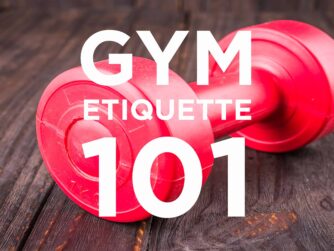If you’re over 40 and feel like your energy tanks faster than it used to, your memory’s not quite as sharp, or your workouts leave you a little more sore than before—you’re not alone. And chances are, one big culprit is right under your nose: your sleep.
As a personal trainer and nutritionist with 25+ years in the industry, I’ve seen time and time again that no amount of protein shakes, gym hours, or supplements can make up for poor-quality sleep. Especially after 40, sleep isn’t just “rest”—it’s recovery, repair, and resilience.
Let’s break it down in real, simple terms: why sleep matters, what it does inside your body, and how getting enough of it can change everything from your metabolism to your mindset.
Sleep Isn’t Lazy—It’s Medicine
We tend to live in a “go-go-go” culture. Hustle is glorified, naps are laughed at, and getting less sleep is often seen as being “tough” or “committed.” But if you’re over 40, it’s time to rethink that mindset.
Sleep isn’t a luxury. It’s a biological necessity.
At night, while you’re out cold, your body is anything but idle. Your brain, muscles, immune system, hormones, and even your skin go to work on restoring, balancing, and detoxifying your system.
Some of the main things that happen during good sleep include:
- Muscle repair and growth: Growth hormone spikes during deep sleep, helping your muscles recover and rebuild. This is crucial if you’re working out regularly.
- Cognitive “clean-up”: Your brain flushes out waste products through a system called the glymphatic system—essentially your brain’s cleaning crew.
- Hormone balancing: Sleep helps regulate insulin (blood sugar control), cortisol (stress), and leptin/ghrelin (hunger hormones).
- Immune support: Your immune system ramps up at night to repair damage and fight off invaders.
- Mental health: Deep, restful sleep regulates emotional responses, reduces anxiety, and supports focus and memory.
How Much Sleep Do You Really Need?
There’s no universal “magic number” for everyone—but 7 to 9 hours is the sweet spot for most adults. And yes, some people may function well on 6.5 or feel great with 9.5. The key is quality and consistency.
After age 40, your sleep architecture changes—your body produces less melatonin, you may wake up more often, and your sleep might be lighter. So even if you’re in bed 8 hours, you might only get 6 hours of restorative sleep.
Tip: If you wake up groggy, irritable, or sore—even after “sleeping 8 hours”—chances are, your sleep wasn’t deep or consistent enough.
Why Sleep Affects EVERYTHING Over 40
Let’s get specific about why sleep matters so much in your 40s and beyond.
1. Sleep and Weight Gain
Lack of sleep messes with hunger hormones—ghrelin (which makes you hungry) goes up, while leptin (which tells you you’re full) goes down. That’s a dangerous combo. Plus, when you’re tired, you’re more likely to skip workouts, eat comfort food, and crave sugar or caffeine.
Bottom line: Sleep-deprived people gain more weight, period.
2. Sleep and Cognitive Function
You’re not imagining it—your memory gets a little fuzzier with age. But poor sleep makes it worse. Deep sleep helps lock in new memories and supports decision-making, creativity, and emotional regulation.
Ever snap at someone or forget where your keys are after a bad night’s sleep? Now imagine that being your every day.
3. Sleep and Muscle Recovery
After 40, muscle maintenance becomes more important than ever. We naturally lose muscle mass (called sarcopenia), and if you’re working out, your body needs extra help to recover.
No sleep equals sore, tight muscles, plus slower recovery.
Fun Fact Break!
- Your brain literally shrinks during deep sleep to let spinal fluid wash out toxins and waste.
- A Harvard study showed that sleeping fewer than 5 hours a night increases your risk of death by 15%.
- Sleep boosts production of natural killer cells, a type of immune cell that helps fight viruses and even cancer cells.
How to Get Better Sleep (Without Drugs)
If you’ve struggled with sleep, you’re not alone. Here are some science-backed tips I’ve given clients that actually work:
- Stick to a schedule. Go to bed and wake up at the same time every day—even on weekends.
- Limit screens before bed. Blue light suppresses melatonin. Try shutting off devices an hour before sleep.
- Create a wind-down routine. Read a book, stretch, take a warm shower, or practice breathing exercises.
- Watch your caffeine. Cut it off by mid-afternoon, especially if you’re sensitive.
- Cool, dark, quiet room. Your body sleeps best in a cave-like setting—around 65°F.
And don’t forget to move your body during the day. Regular exercise (even walking or stretching) can promote deeper sleep—just don’t go too hard right before bedtime.
Stretching + Sleep: A Secret Weapon
Adding 10 minutes of light stretching or mobility work before bed can calm the nervous system, reduce muscle tension, and ease you into sleep. Try gentle forward folds, deep breathing, or foam rolling. Think of it as a mini-reset for your muscles and mind.
The Takeaway
If you’re over 40, sleep is your superpower. It’s how your body heals, how your brain stays sharp, and how you stay lean, strong, and emotionally balanced.
Skipping sleep might feel productive in the moment, but over time, it taxes your system in ways that no supplement or workout can fix. It’s not about being perfect—just consistent.
Start by protecting your bedtime like it’s your best friend—because honestly, it is.
Need help building a fitness or recovery routine that works with your sleep schedule? I’ve helped hundreds of clients balance their training and lifestyle to make better sleep easier. Reach out if you’re ready to make sleep part of your success strategy.
References:
- Walker, M. (2017). Why We Sleep: Unlocking the Power of Sleep and Dreams
- Harvard Health Publishing. “The price of insufficient sleep.” Harvard.edu
- National Sleep Foundation. sleepfoundation.org







